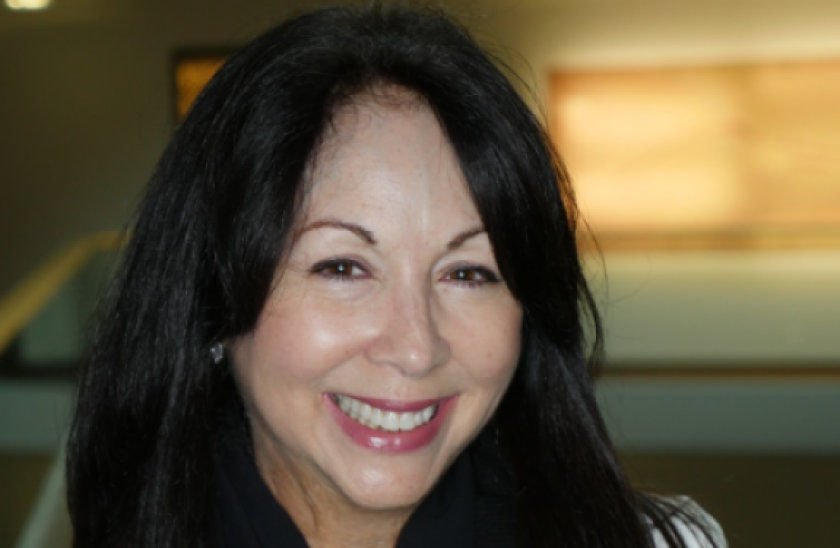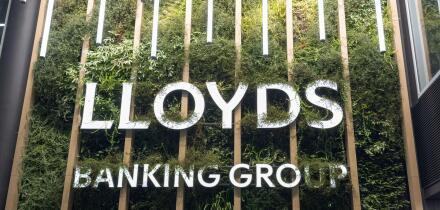IFFIm’s financing model is based on long-term and legally binding pledges from donor countries, against which it issues bonds to provide immediate funding to Gavi. As of 2020, 10 sovereign donors have pledged almost $8bn to support the supranational’s work.
It last accessed the capital markets in June to frontload a Nkr2bn ($219m) pledge from the Norwegian government to help fund the urgent development of coronavirus vaccine candidates.
How has IFFIm responded to the Covid-19 crisis? How prepared were you for something like this?
This health crisis is daunting in so many ways: the huge number of countries affected, the fast dissemination of the disease, the number of deaths to date and the likelihood of even more. Just four months ago at the end of March there were only about 10,000 deaths reported, but at the end of June we surpassed half a million worldwide. How could anyone be well prepared for something like this?
I think that only the global availability of a vaccine will allow us to break this epidemic’s cycle, and this requires an urgent and enormous amount of funding. Initially, this is needed to research and develop vaccine candidates, and subsequently to implement a massive vaccination programme once one is found to be effective and safe.
IFFIm is an ideal tool that can help bring forward long-term funding for this purpose, and we are already supporting the work of the Coalition for Epidemic Preparedness Innovations (CEPI).
CEPI was launched in 2017 with the mission of accelerating vaccines against epidemic diseases. At that time, Covid-19 didn’t exist, but now it is at the forefront. The goal in the case of [the coronavirus vaccine], for instance, is to cut development time from the historic norm of 10-15 years to a record 12-18 months. For that CEPI has received additional funding of up to $2bn dedicated to finding a Covid-19 vaccine from both public and private sources. Part of this funding has come from IFFIm through the recent vaccine bond issuance totalling Nkr2bn backed by a Norwegian government pledge.
How can IFFIm’s model help in the global response to the coronavirus pandemic? How critical is IFFIm and Gavi’s work now that global demand for a coronavirus vaccine is so high?
We have already started to tackle the research and development of prospective Covid-19 vaccines. Once an effective vaccine is developed, Gavi will pursue an effective and fair vaccine rollout, so that anyone who needs a vaccine, no matter where they live, can get it. Here, IFFIm can help step in and fund the structure for equitable access to the Covid-19 vaccine, so that developing countries can get the vaccine at the same time developed countries do.
However, not all the attention from Gavi and IFFIm is going to Covid-19 efforts, as it is not a good idea to lose sight of the importance of continuing routine immunisation efforts against other vaccine-preventable infectious diseases.
One major threat of the Covid crisis is the disruption of routine immunisation programmes in many countries, so Gavi and its partners are working intensely to maintain ongoing vaccination programmes to prevent deaths from diseases like measles, yellow fever, pneumonia and meningitis.
Gavi is continuing to do this, and IFFIm will support its efforts in ensuring routine vaccinations don’t backslide and create other complications.
What impact has IFFIm had on vaccine manufacture?
Many vaccine manufacturers required a strong long-term commitment from Gavi to produce needed vaccines that previously weren’t produced on a large scale, as the diseases were no longer prevalent in developed countries. They needed an enticement from Gavi, and IFFIm has played an integral part. If you look at Gavi, the funding it raises directly is not on a long-term basis. What IFFIm has done is show vaccine manufacturers that highly rated sovereign governments are willing to commit to very long-term legally binding pledges. This has helped to persuade pharmaceutical companies of the longevity of Gavi’s requirements, helping to secure long-term supplies of vaccines at affordable prices from manufacturers.
What sort of role will IFFIm and Gavi play in the rollout of a successful coronavirus vaccine?
We are channelling funding to CEPI, who then looks at different prototypes to see which are promising and dedicates R&D funds as appropriate. At some point last month there were over 150 different vaccine candidates for Covid-19, and hopefully this number will narrow down as we move forward in screening out harmful or ineffective candidates. When an effective and safe vaccine is found, funds will go towards helping to roll it out. IFFIm at that point can help to frontload any donor contributions to the dissemination effort. I mentioned that CEPI is in the process of raising $2bn from several governments and private sector organisations to research a vaccine, but that is only the tip of the iceberg when you need funding for a global roll out.
What is the benefit in frontloading these pledges?
At the beginning we had seven sovereign donors making long-term pledges to IFFIm through obligations that were payable in instalments, with some of them spreading out to 23 years. But with immunisation programmes the important thing is to tackle the problem as soon as possible, rather than waiting for those pledges to be paid in. The legally binding nature of these pledges allowed us to frontload them by going to the capital markets and pass on funds to Gavi as soon as possible through the bond market.
You’ve already frontloaded a Nkr2bn pledge so far this year — what’s next?
This year we also expect to disburse funds to Gavi for its pre-Covid-19 immunisation programmes, so we intend to go back to the bond markets to raise this funding.
In addition, at the beginning of June, the UK’s Department for International Development sponsored a replenishment event for Gavi, where almost $9bn was pledged to support Gavi immunising another 300m children during the 2021-2025 period and respond to the Covid-19 crisis. This amount includes long-term pledges to IFFIm from Norway, the Netherlands, Italy and Spain totalling almost $1bn. It is possible that more countries could come forward with pledges to support Gavi’s 2021-25 strategic goals, as well as coronavirus vaccine research and development.
All these pledges for existing and new Gavi programmes, including Covid research, will need front loading, so we expect IFFIm to be active issuing vaccine bonds in the capital markets this year and beyond.
Have you put any of your project financing on hold due to the coronavirus pandemic? Is all the focus on Covid, or are other emerging infectious diseases still in line for funding?
We are continuing to implement everything according to the existing programmes. It is challenging in some countries because of the pandemic, but we expect to continue disbursing funds to Gavi for the maintenance of existing immunisation programmes, in addition to those that might arise because of Covid-19.
What has this pandemic shown about the role of highly focussed issuers, like IFFIm, in the public sector?
This pandemic has underscored how the capital markets can work with public sector and government funding to be part of the solution in helping to address global development, and, in this case, health challenges. In general, the pandemic has brought to the forefront for all of us, issuers and investors, the importance of protecting the most vulnerable in society and to build resilience in our communities and institutions to safeguard against shocks like Covid-19. IFFIm’s funding support is a concrete example of types of responses that can help us move forward. We can do a lot together as issuers, governments, and investors.
Do you feel the shared experience of this pandemic has helped increase investor awareness of the impact of social bonds and socially responsible financing?
The answer is, of course, yes. Although social and sustainable investment strategies have already caught on in the capital markets, they are now benefitting from a lot more interest and investment flows. We have seen several Covid-19 themed bonds sell very well. Investors are looking to contribute to solutions to the pandemic, in addition to protecting the financial value of their investments.
Before Covid-19, investors globally were already incorporating environmental and social governance [ESG] factors into their risk analysis and investment processes across asset classes and in entire portfolios. Today, there appears to be an even greater motivation to look at the “S” in ESG. The pandemic has uncovered significant social risks related to health inequality, and the effect of these risks on the value of investments. Investors are noticing and acting on that.
With this increased interest, be it from issuers or investors, is a strictly defined social bond protocol needed?
It’s a very complicated area. For IFFIm, it’s an easy answer. It is relatively easy for us to report the impact, as IFFIm exists for the sole purpose of supporting Gavi’s mission. So, we have a very specific and targeted social mandate that is rare in the high grade fixed income markets.
But beyond IFFIm, it is hard to come up with a one size fits all uniform protocol for social and sustainability bonds. On the investor front, each decides their own investment criteria. They do not have a standard approach. For issuers, harmonisation of potential use of proceeds and impact reporting are easier said than done. There are too many views on what constitutes a social good, too many impacts that are difficult to quantify. So, I think at best, issuers should strive to be truthful and transparent.
Gavi is funded by both public and private donors. What sort of role do you see this sort of partnership playing in social impact financing? Is this seen as the way forward?
I do think we need more public/private sector partnerships, like Gavi and CEPI, and we need more capital market solutions to development challenges via more IFFIms. Institutions like the World Bank and other supranationals do already access the capital markets to find solutions for the global development challenges. So, we need more of that.
Looking at Gavi specifically, it has been tremendously effective in achieving its objectives as a public/private sector partnership. A recent Johns Hopkins University study showed that for every $1 Gavi spent on immunisation, $54 are saved in healthcare costs. Estimates are that Gavi-supported programmes have generated more than $150bn in economic benefits, and this is no mean feat. IFFIm has made a dramatic difference to Gavi by providing around 20% of all its funding. Hopefully, this success can be replicated in other areas.
Currently governments around the world are spending breath-taking amounts of money to support global health, and the Covid-19 pandemic is stretching budgets and pushing other needs to the backburner. So there is certainly room for private sector initiatives to help mobilise more funding to support more socially responsible initiatives.
We need to all come together to replicate success stories like Gavi, CEPI and IFFIm. The structures under consideration are all slightly different. Education is one area where a surge in private funding would benefit development. Similarly, organisations that are working to tackle other health and sanitation challenges have approached IFFIm, as have groups looking to fund the clearing of landmines in conflict zones, for example. All these areas merit a serious look to what we can do today with public and private support.
Finally, how has your role changed from being IFFIm’s fundraiser at the World Bank to now sitting on the board itself?
The relationships with investors are richer. When my colleague Heike Reichelt at the World Bank and I visited investors in early 2006 for the pre-marketing for IFFIm’s maiden bonds, the sole focus for investors was understanding IFFIm’s credit. This dialogue evolved with a lot of curiosity on environmental and social governance aspects, and the impact of IFFIm’s programmes. I would say there is a more human face to investing, and these questions are no longer only the purview of socially responsible investors, but now mainstream investors too.
It’s been inspiring seeing how the work of public and private sector leaders like Gordon Brown and Bill Gates have helped to make IFFIm and Gavi happen, and also [the work] of my many colleagues behind the scenes. It’s great to see the success Gavi and IFFIm have had in achieving a reduction in child mortality. Since 2000, Gavi has vaccinated over 760m children and helped save at least 13m lives.







